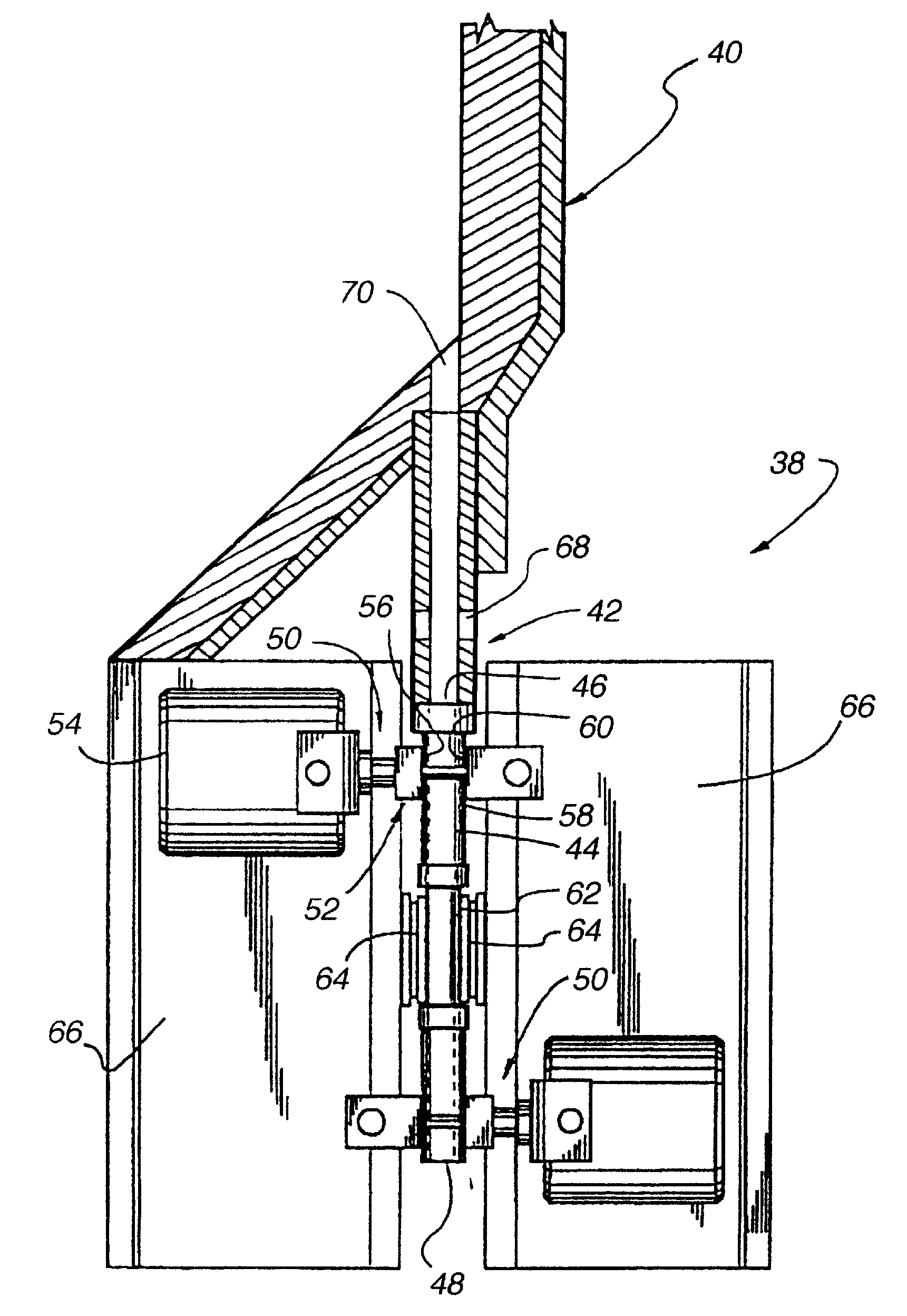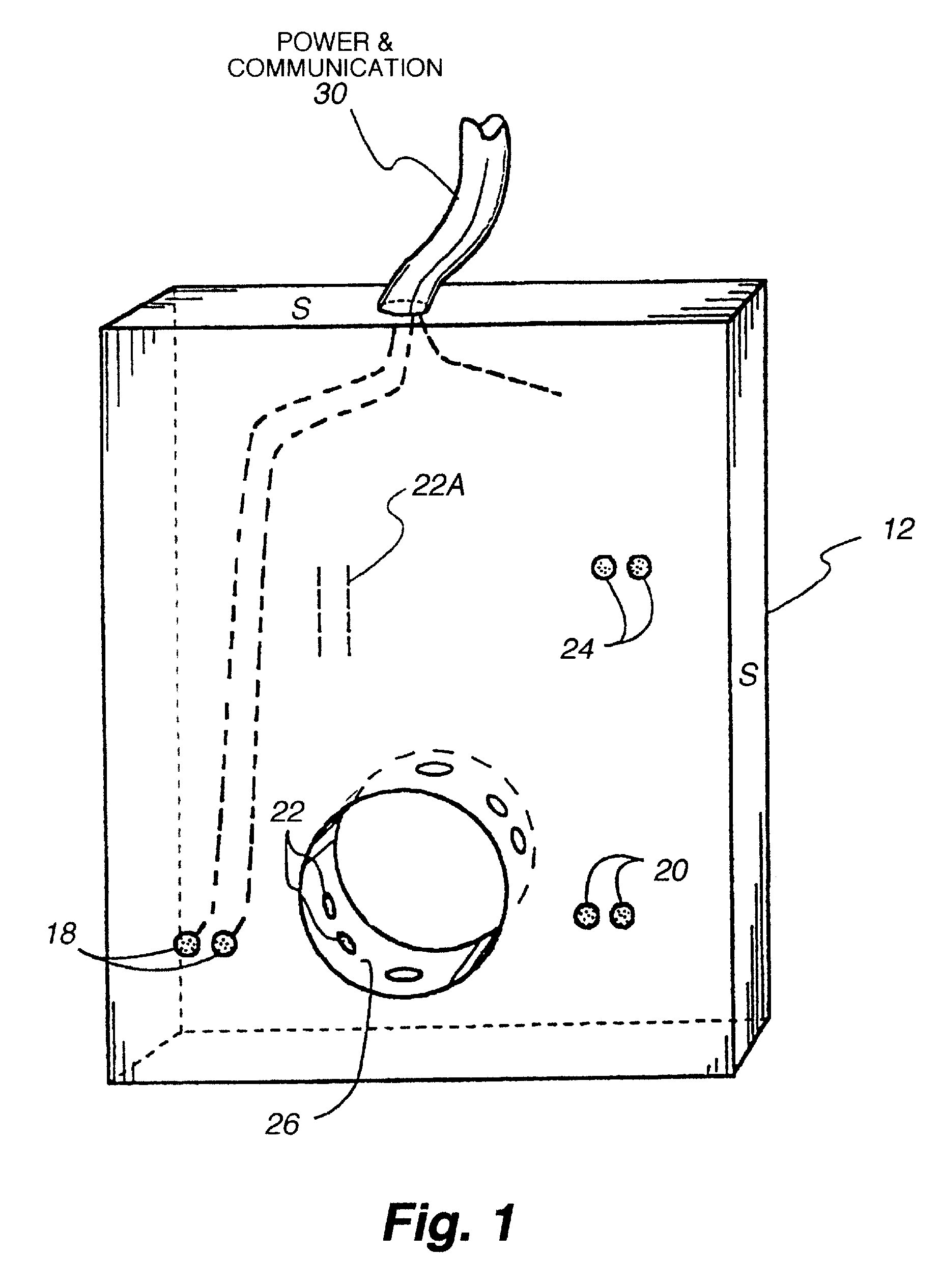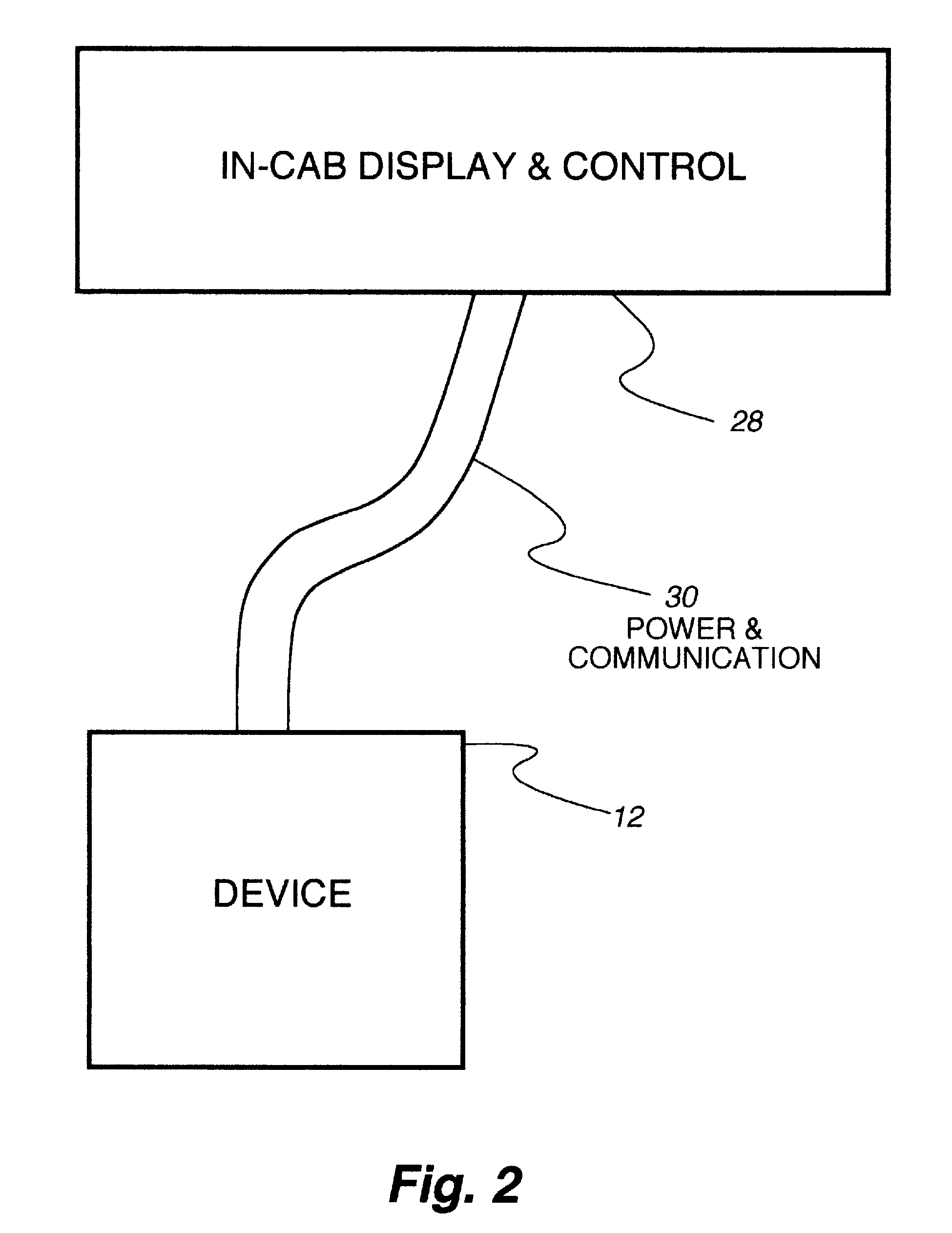Methods For Determining Need For Treating A Vehicle Travel Surface
a technology for vehicle travel surface and condition monitoring, which is applied in the direction of optical radiation measurement, navigation instruments, instruments, etc., can solve the problems of inability to install instruments commercially on motor vehicles, limited mobile systems, and inability to realize real-time weather sensing equipment that can be used on vehicles. , to achieve the effect of reducing the development of future adverse conditions
- Summary
- Abstract
- Description
- Claims
- Application Information
AI Technical Summary
Benefits of technology
Problems solved by technology
Method used
Image
Examples
first embodiment
[0041]Referring now to FIGS. 1 through 3, a first embodiment of the apparatus of the invention includes a platform 12 which is typically vertically mounted behind a vehicle wheel 14 for the surface material monitoring portion if the present invention. in this application, the platform 12 replaces and also operates as a conventional mud flap on the vehicle 10. A similar platform for the atmospheric monitoring portion of the present invention may be mounted in various positions as shown on the upper portions of the vehicle 10 in FIG. 3.
[0042]As stated above, one of the objects of this portion of the invention is to provide a unique multipurpose mounting platform 12, such as is shown in FIG. 1, that enables the temporary use of materials 16 or periodic examination of materials which are typically discharged from a vehicle wheel / road surface interface to measure certain characteristics of the materials that have left a roadway surface (surface materials), and to also determine certain c...
second embodiment
[0064]A second embodiment of the surface condition sensing system in accordance with the invention is shown in FIGS. 4-8. The system in accordance with the second embodiment is specifically directed to determining the freezing temperature of a surface material. It includes an apparatus 38 that collects material from the road surface into a chamber, freezes it, determines the freezing temperature, communicates the data appropriately to a display / control console, and then thaws the material, empties the chamber, and prepares for the next measurement cycle. The apparatus 38 is mounted in a location on the platform 12 as disclosed above.
[0065]The apparatus 38 associated with this system is seen in a side view in FIG. 4. The apparatus 38 comprises a support structure 40 made of any suitable material, for instance a laminate of a thermoplastic material and aluminum, and a capture and measurement portion 42 supported below and from the support structure 40. The capture portion 42 comprises...
third embodiment
[0079]A block diagram of a third embodiment of the vehicle travel surface material sensing portion of the system in accordance with the present invention is illustrated in FIG. 9. This third embodiment is a completely remote sensing apparatus which is mounted on the vehicle. This system 200 includes at least one electromagnetic radiation transceiver 202 which preferably is an ultra-wide band (UWB) impulse radar. A very short electromagnetic impulse is propagated from transceiver 202 and echoes that reflect from the road surface 204 are evaluated. These reflected signals are sent to a depth processor 206, a density processor 208, and at least a chemical composition processor 210. The EMR reflected pulse or pulses may be utilized directly by the depth processor 206 to determine the depth of any surface layer of material on the roadway. However, the density processor, and composition processors 208 and 210 rely also on input from a database 212 to determine, by comparison to peak heigh...
PUM
 Login to View More
Login to View More Abstract
Description
Claims
Application Information
 Login to View More
Login to View More - R&D
- Intellectual Property
- Life Sciences
- Materials
- Tech Scout
- Unparalleled Data Quality
- Higher Quality Content
- 60% Fewer Hallucinations
Browse by: Latest US Patents, China's latest patents, Technical Efficacy Thesaurus, Application Domain, Technology Topic, Popular Technical Reports.
© 2025 PatSnap. All rights reserved.Legal|Privacy policy|Modern Slavery Act Transparency Statement|Sitemap|About US| Contact US: help@patsnap.com



